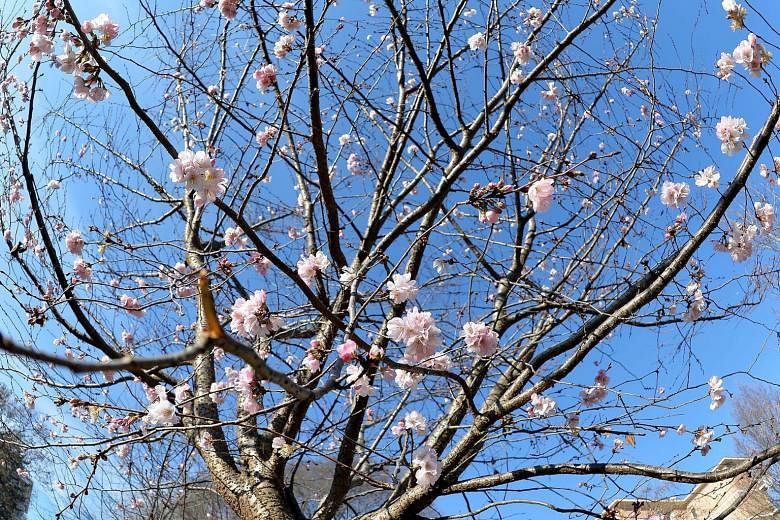BORDEAUX/ROME • The daffodils are out in London, plum trees are blossoming in Milan and asparagus tips are pushing through the soil in eastern France.
Across Europe, unseasonably warm winter weather has left the natural world in a spin, with plants, insects and animals convinced spring must be around the corner.
The disruption of established weather patterns has put strawberries on festive menus in France, ensured an abundance of game in Germany's woodlands and seen tomatoes ripen for an exceptional third time on Italian balconies.
With grass still growing in the north of Scotland well into December, the famous Royal Dornoch puts the traditional switch to winter greens on hold and kept its mowers buzzing into the final days of 2015.
But alongside the serendipitous consequences for gourmets and golfers, unusual climatic conditions have also been linked to more unsettling trends. Scientists and gardeners alike fret over whether this year reflects a worrying new normal, created by global climate change.
More than 2,000 wildfires have ravaged swathes of northern Spain in recent weeks, thanks to a combination of unusually warm weather and high winds.
Farmers across Europe, meanwhile, are grappling with the hard-to-predict implications of conditions which, while boosting the production of some crops, may reduce yields of others and allow pests to thrive later in the year due to the absence of a sustained winter cold spell to kill them off.
"It is strange to see how certain plants are already flowering," said beekeeper Hans-Jurgen Packheiser from Halver in Germany's North Rhine-Westphalia region. "Some of the bees in my hives are already out looking for nectar. They think winter is finished."
In the Dordogne region of south-western France, strawberry producers were surprised to see plants that would normally have to be protected from frost from mid-November onwards continue to bear fruit right up to Christmas.
"Even my father-in-law, who has been producing strawberries since 1956, has never seen anything like it," said Ms Patricia Rebillou, president of the local producers' association.
It is a similar story in Alsace, where amateur gardener Rene Wolfhugel was able to harvest enough asparagus for his Christmas Eve dinner, four months earlier than normal for a vegetable that traditionally heralds the arrival of spring.
"When I saw the tips pushing through, I could hardly believe my eyes. I had to call my neighbours to come and see," said Mr Wolfhugel.
For French market gardener Jean-Louis Durrieux, the disruption of seasonal rhythms is less welcome.
With similar conditions across Europe, the result was a glut of ready-to-harvest plants, which had left him with no choice but to throw away 60 per cent of his October plantings, Mr Durrieux said.
Local residents Steve and Mary Bavin were half-astonished, half-delighted when their hens resumed laying last November. "It is nice to have fresh eggs in winter, but it is also worrying because along with the higher temperatures, we also seem to be getting a lot more rain and wind," said Mr Bavin.
Mr Stephane Longuepez, an official with the northern French city of Lille's parks and gardens department, also indicated that a precocious spring was not to be welcomed. "It is easy to think that with the good weather, everything will grow better," he said.
"But bulbs, like tulips, might not flower this year because they need a cold winter spell for their development."
AGENCE FRANCE-PRESSE


